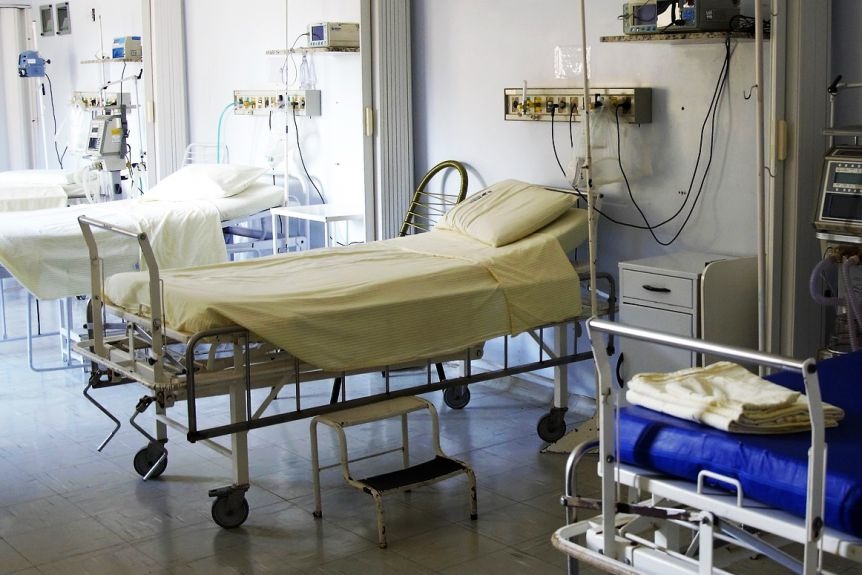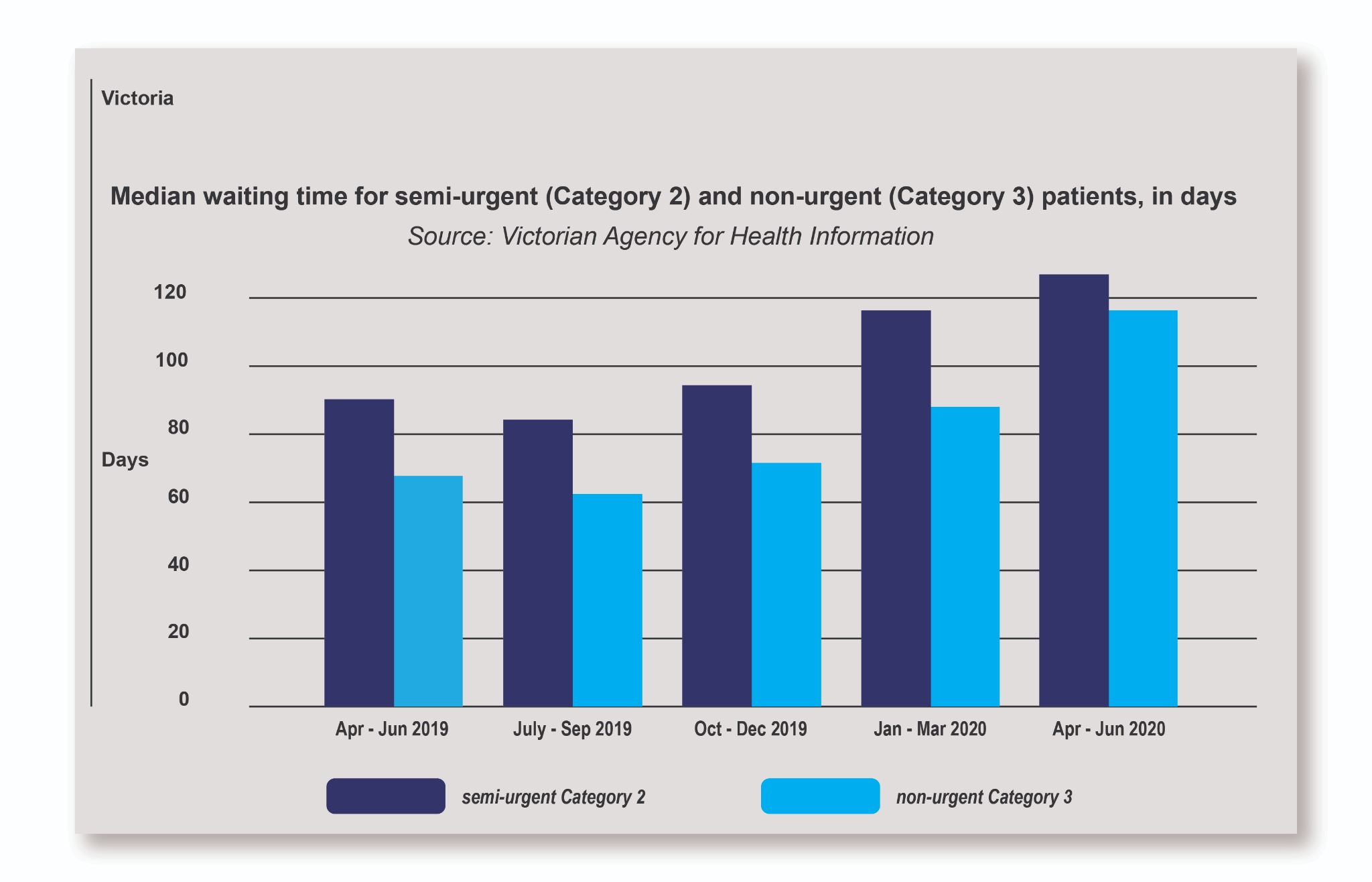Victorian elective surgery hospital waitlist surge
The Federal Government’s decision to pause non-urgent elective surgery has seen a median increase in the number of days Victorians remain on a waitlist.
Prime Minister Scott Morrison announced that that all non-urgent category three elective surgery will be temporarily suspended and only category one surgery and some exceptional category two surgery will continue in public and private hospitals to free up resources to combat the coronavirus outbreak.
In Australia, an elective surgery patient is assessed by category: urgent category one, treatable within thirty days, semi-urgent category two, treatable within ninety days, and non-urgent category three treatable within twelve months.

A patient’s condition: in category one has the potential to deteriorate quickly and become an emergency, in category two is causing pain although unlikely to become an emergency and in category three is causing pain although unlikely to deteriorate quickly.

An analysis of public hospital
waitlist performance data published by The
Victorian Agency for Health Information (VAHI) shows
the elective surgery suspension has caused a 49-day median increase
in non-urgent category three patients, and an 18-day median increase
in semi-urgent category two patients waiting for elective surgery in
Victoria, in the April to June quarter this year, compared to last
year’s quarter.

Australian Patients Association (APA) CEO Stephen Mason said non-urgent elective surgery is an unnecessary risk, taking up bed facilities and surgeon’s time during COVID-19 but that when the non-urgent elective surgery ban is removed there will be a big back log of patients waiting.
“It is frustrating for all those people who can’t have their hip replacement, knee replacement, and various other things that are deemed to be non-urgent but affect their quality of life,” Mr Mason said.
“What’s more frustrating is that they don’t know when these will be rescheduled, the hospitals can’t tell them, so there is no communication,” he said.
The VAHI public hospital data reveals, 4.27 per cent non-urgent category three patients, and 16.15 per cent semi-urgent category two patients, were not treated within the recommended time, in the April to June quarter this year, compared to a year ago.
“It’s really been a mixed bag depending on the hospital…we have had a lot of patients saying, I had a letter saying I had a face to face appointment, then I had an SMS saying it would be a phone, so there has been a bit of confusion, it hasn’t gone that smoothly but I imagine things are a bit chaotic in some of the hospitals,” said Mr Mason.
The Prime Minister said, due to COVID-19 slowing elective surgery will be reintroduced in three stages, with each jurisdiction to determine according to their situation.
Currently in Victoria, the initial non-urgent elective surgery suspension still applies.
The APA is an independent not-for-profit organisation, which provides information, advocacy, and support to patients.
More information on the rights and interests of patients can be found on the APA website www.patients.org.au
Post a comment